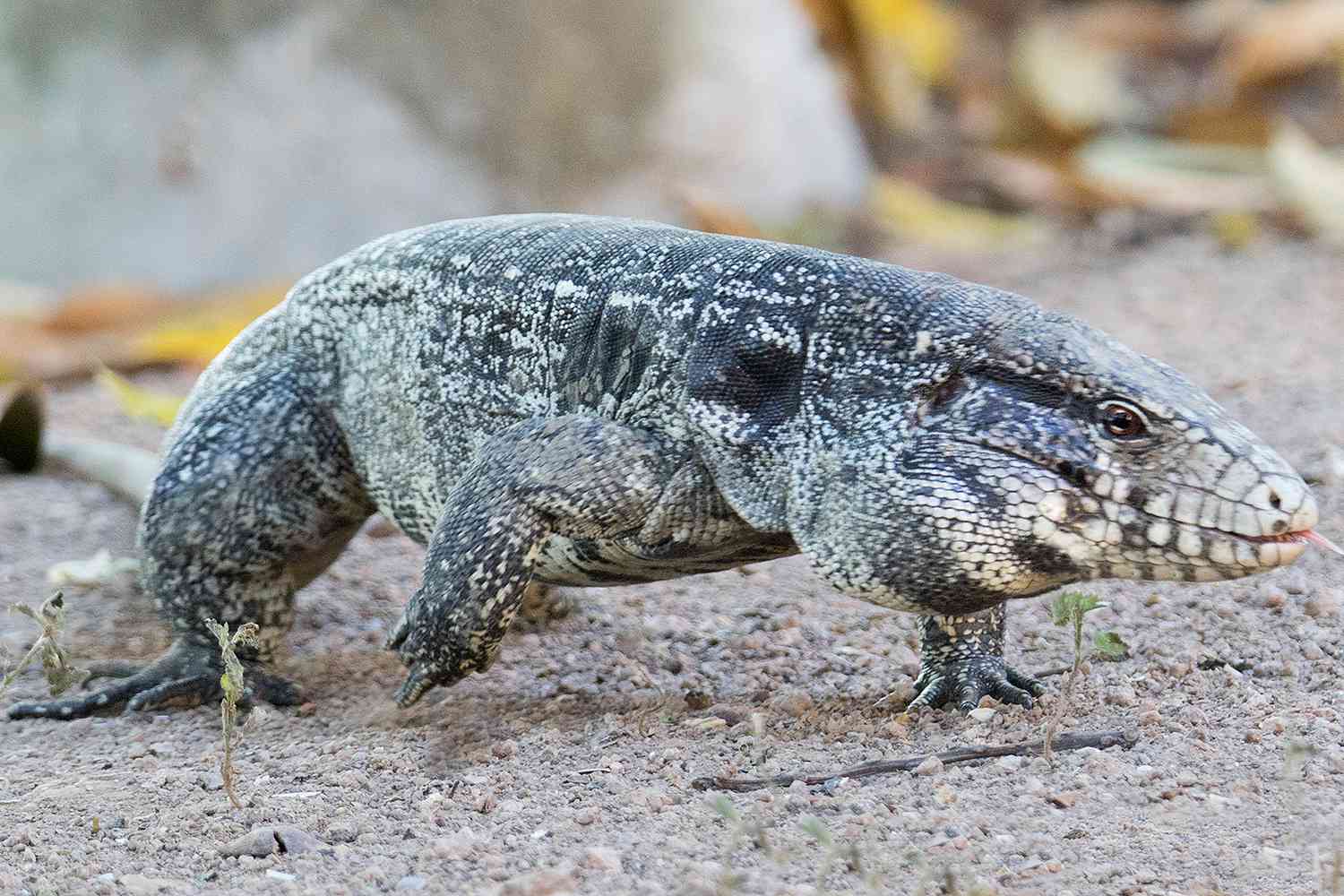Invasive Dog-Sized Lizards Are Spreading Across the Southeastern United States
The Argentine black-and-white tegu has made its way to the United States' southeast, and experts are warning about the harmful impacts it could have on the area's ecosystem.
According to National Geographic, the invasive, dog-sized lizards are native to South America but are now spreading to places like Georgia, South Carolina, Texas, Louisiana, and Alabama, after being bred in southern Florida for over a decade.
Amy Yackel Adams, a biologist with the U.S. Geological Survey, told the outlet that the lizards were first brought to the U.S. as pets, however as some escaped or were released into the wild, they began to spread. Now experts say it's becoming a problem, as they can be particularly dangerous to endangered species in the area.
"The entire southeast portion of the United States is at risk," Adams told National Geographic. "Much of this area has a climate that is suitable for tegus."
According to Adams, the species thrives in upland forests and grasslands, particularly those that receive a lot of seasonal rain. She noted that with climate change, as tropical and subtropical zones start to shift north, the tegus will have a larger region to expand.
The animals — which can grow up to 4 feet long — are omnivores and will eat anything, including eggs, birds, strawberries, vegetables, and even sea turtles.
Never miss a story — sign up for PEOPLE's free daily newsletter to stay up-to-date on the best of what PEOPLE has to offer, from juicy celebrity news to compelling human interest stories.
The South Carolina Department of Natural Resources documented their first confirmed sighting of the lizard in August and said it can have "serious negative impacts" on the state’s wildlife.
"Tegus mature and reproduce quickly, though most concerning may be their preference for eggs and the potential impacts to our native ground-nesting birds like turkey and quail, as well as other species such as the state-endangered gopher tortoise," herpetologist Andrew Grosse said in a statement at the time.
To combat the tegus invasion, some states have asked wildlife officials to begin trapping the animal while they search for a solution.
In Georgia, experts are reporting that it seems to be working as they are finding fewer of the animals.
"We’ve been trapping them for a couple of years now," Daniel Sollenberger, a herpetologist with the Georgia Department of Natural Resources, told the National Geographic. "We brought in around a dozen last year and about a half a dozen this year. It could be that there are fewer of them now, at least in that location.”
The Georgia Reptile Society also created a Tegu Task Force to include the community in finding suspected tegus.
"We do everything we can to get the animal, capture it, and try to rehome it,” said Justyne Lobello, president of the Georgia Reptile Society. "We want to help take them out of the habitat as humanely as possible. It helps that we have a long waiting list of people who want one as a pet."
Source: Read Full Article
